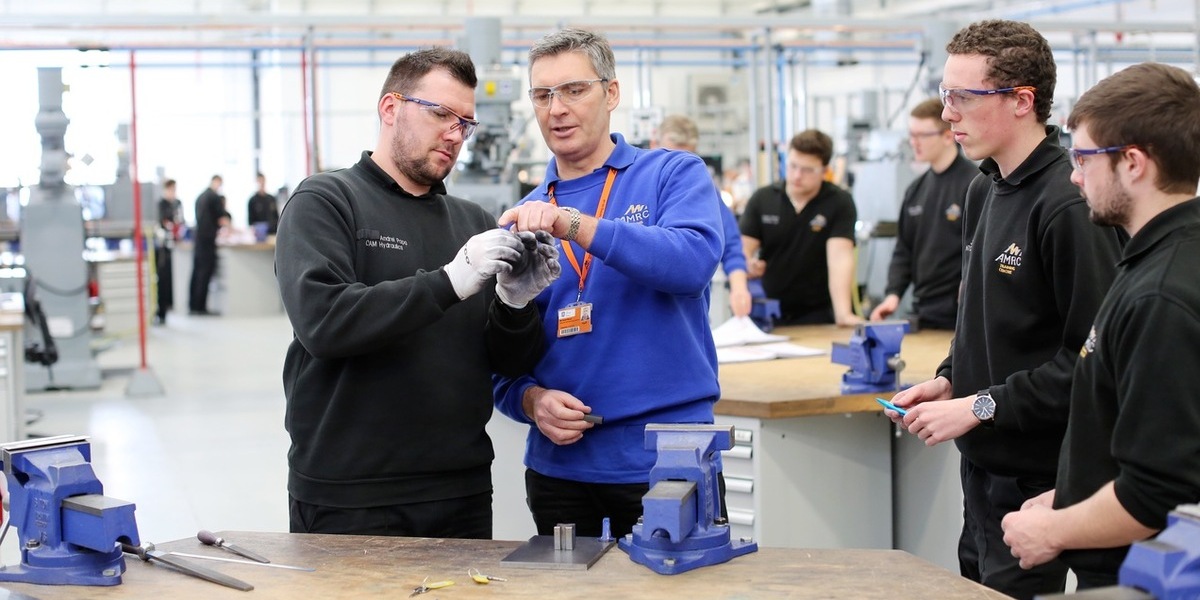Degree Apprenticeships Toolkit
Case study: Advanced Manufacturing Research Centre, University of Sheffield
The University of Sheffield has been an early entrant to this new form of higher learning.
Its Advanced Manufacturing Research Centre – AMRC with Boeing (which specialises in the research and development of better manufacturing processes and more efficient factory optimisation) has excellent relationships with businesses – both large multinationals (typified by Boeing) and also local SMEs. It has been delivering research and taught masters degrees since its inception almost two decades ago. For the past three years, the AMRC as part of the University of Sheffield has provided advanced and higher apprentice training, with an annual intake of 205 apprentices. Having identified a gap in manufacturing education at degree level, it has been able to take advantage of the government initiatives and funding around degree apprenticeships to develop its offer.
With a Further Education college partner, locally, the AMRC Training Centre already offered a Foundation degree and higher apprenticeship, but is now recruiting to the first year of its new Bachelors in Manufacturing programmes (BMan), designed to provide degree level apprenticeships in Manufacturing. The BMan programme will run via day release over three years. By teaching over 36 weeks a year, on one (long) day a week, and using a flipped classroom/blended learning approach, the curriculum has been designed to deliver graduates of the standard that employers are expecting. Students will be able to study for a foundation degree in two years, a bachelor’s degree in three years or to master’s level over four years.
The employers say that the key benefits are that as well as being better engaged and loyal,
- the students understand industry;
- they know how to make things;
- they have manufacturing skills;
- they have an established work ethic.
In addition, they will have access to experts from the university and AMRC to support student projects and the apprentice levy and government support improves the financial viability, even for small companies.
From the students’ perspective, they get paid while they study, ‘earn while they learn’ and apply their academic learning in their own workplace through project work in their companies. The blended learning approach means that they will be able to do much of the learning in their own time, meaning that the time they spend in at university will focus on problem classes, laboratories and tutorials.
The university sees it as a flagship activity with a number of key advantages:
- It enables the university to cover the full post-16 to PhD spectrum of education in manufacturing, with industry engagement at every stage;
- It enables the university to apply its standards and educational experience to widen the number and diversity of people studying engineering.
- It allows the university to better engage with the region, its local manufacturing base and the rest of the world to provide an additional pipeline of well-qualified, graduate engineers.
With thanks to Professor Stephen Beck, Head of Multidisciplinary Engineering Education, University of Sheffield.
Any views, thoughts, and opinions expressed herein are solely that of the author(s) and do not necessarily reflect the views, opinions, policies, or position of the Engineering Professors’ Council or the Toolkit sponsors and supporters.



